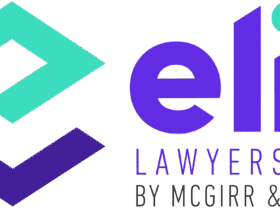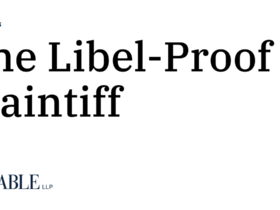There is no shortage of paradoxes in this universe, but the balance between free speech and defamation stands out in terms of its complexities. This is a complex matter, especially in Australia, where a clash between these rights often creates a delicate balance between safeguarding public discourse and protecting individual reputations.
These are the cases where the assistance of the best defamation lawyers Perth WA, will be useful.
This blog will explore the legal frameworks related to defamation and free speech in Australia. So, let’s dive into the details for a better idea!
What is Defamation?
When a person communicates or publishes a false statement about someone and damages their reputation, this is known as defamation. In countries like Australia, state laws govern most aspects of these cases. However, certain common legal principles play an important role here.
When a plaintiff needs to make a defamation claim, they will need to prove the following elements:
Defamatory Comprehension: This condition mandates that reasonable people understand the defamatory statement for it to convey a meaning. The statement’s meaning might be implied or explicit, depending on its nature.
Plaintiff Reference: Another important element is ensuring that people understand the statement’s reference to the plaintiff. This reference can be anything from a name to identifying factors or even a description.
Publish: A third party must publish the statement using traditional or digital communication mediums.
Reputation Damage: The final condition here requires the plaintiff to demonstrate that the statement has or can cause harm to their reputation.
Are There Any Defences to Defamation Claims in Australia?
Australian law offers different defences to defeat a defamation claim with proper legal compliance. You will need a competent corporate defamation lawyer to help you navigate these complexities and offer defences like:
Honest Opinions: The defence will apply to the statement of opinion based on genuine facts provided that the concerned party holds and expresses their opinion.
Truth: If you are certain that your statement is true, it automatically becomes a robust defence in court.
Fair Comment on Matters Concerning the Public: The defence for these cases ensures protection for fair comments on matters related to the public interest. The only condition here is that the comment has to be based on genuine facts.
Publication of Public Documents: The statement enjoys protection from defamation if it is contained in public documents like parliamentary proceedings and court judgments.
Qualified Privilege: The defence will automatically apply to statements made on specific occasions. This will include situations where there is genuine communication between individuals with a legitimate interest in the subject matter. This also includes statements included in the course of parliamentary proceedings.
Role of Social Media in Defamation and Free Speech
It is no secret that the growing popularity of social media platforms is changing communication around the world, and Australia is no exception. These platforms make it easier to publish defamatory content without knowing the relevant legal consequences.
Courts and relevant legal stakeholders in Australia and the rest of the world are well aware of these developments. This has resulted in many authorities drafting new rules and regulations for online defamation.
These legal statutes deal with a wide range of issues, including the global reach of everything you post online and even anonymous posting. In case you have been a victim of such an adverse ordeal, it is for the best that you seek assistance from experts of defamation in media law. They will provide you with the right assistance and resources to minimize damage and ensure justice prevails.
Conclusion
Every concerned stakeholder is aware that the debate of balancing defamation with free speech is an ongoing struggle. Given the current situation, it seems very likely that this debate will linger for quite some time now.
Therefore, we must work together to acknowledge the new challenges posed by the rise of social media. This will help us craft regulations that strike the right balance between defamation and free speech.
If you have been a victim of a defamatory statement damaging your reputation, you must take proper action to address the issues. Simply search for a reliable defamation lawyer and get the right expert in no time.















